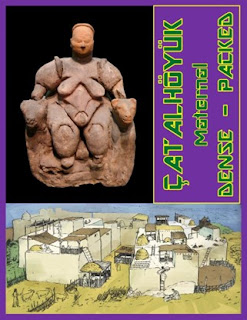Monday, April 29, 2024
Big Creationist Creational Bang, Thank You Einstein!
THE INDO-EUROPEAN BIG BANG
https://jacquescoulardeau.medium.com/the-indo-european-big-bang-9dba2fd24342
Xavier
Rouard searches and researches the linguistic world, scientific research of
course, for the origin, the cradle, the homeland, or the motherland, of
Indo-European. He is not the only one in the world, but he goes against
practically all the others by positioning this linguistic nursery in Central
Asia based on a Eurasian or trans-Eurasian language or languages. But precisely
Eurasian languages only came into existence from the moment when syntactic-analytic
Indo-Iranian languages left the Iranian plateau where they had stationed
themselves when they arrived from Black Africa, some 40,000 years ago, or BCE,
not much difference here. They had to go through the Ice Age first and finally
get on the move after this climate event probably around 15,000 BCE, some east
to the southern Asian continent, with Pakistan and India, others west down into
Mesopotamia and from there to Europe. These people, on both side, encountered
people who spoke other languages, Turkic agglutinative languages, and isolating
Sino-Tibetan languages, mostly. These languages had integrated the Denisovans
and their own language(s). Thes encountered people were hybrid Homo Sapiens
with a varying proportion of Denisovan DNA in Central Asia, and the same in Mesopotamia
with a varying proportion od
Neanderthalensis DNA. When they reached Europe, the population was essentially
of Turkic language and origin with a varying level of hybridization with
European Homo Neanderthalensis. It is such encounters that generated or
engendered the various Indo-European or Indo-Aryan languages
My
approach is phylogenetic and thus it is absolutely impossible for me not to
take into consideration the migrations and geographic, hence social, cultural
and linguistic movements of these populations. That’s the basic principle of
Joseph Greenberg who considered that all these migrations had only one matrix
or melting pot that produced the emergence of human articulated language on the
basis of what these emerging Homo Sapiens inherited from the other Hominins from
which they were descending.
But
Joseph Greenberg and his disciples encountered a problem: in all language you
should find a certain number of words whose “roots” are universal and stable in
meaning. These are the roots coming from Black Africa before any migration out of Black Africa. The problem is then that
it does not enable any topology of languages. So, they, Greenberg and his
disciples, tried to introduce “grammatical” or “syntactic” words, but even so
it does go that far.
To
get somewhere you have to ask the question about the phylogeny of articulated
language(s), and there you only find three articulations in a precise order:
root-languages (by the way vastly ignored by Xavier Rouard), Isolating
character languages, and agglutinative as well as synthetic-analytic languages
according to the migrations out of Black Africa. If you do not consider this
phylogeny, then you put all sorts of languages together in the melting pot and
you let things happen all by themselves. In my approach, languages are in
contact thanks to the contacts established among the various communities
speaking different languages, with exchanges, borrowings and
communication. But finding out that
words are vastly common among the languages of this Central Asian area does not
prove anything. It is just the proper way languages works at the level of
words.
60%
of English words are of French origin. That does not make English a Romance
language because the syntax of English is definitely Germanic, and this makes
English a Germanic language. That’s why
a language can borrow words from another language because the syntax is
not changed. Syntactic changes can only
come from the phylogenic evolution of the concerned language, within the
phylogeny of its linguistic family, within
the phylogeny of language as a human competence.
Welcome
and enter the debate.
Éditions
La Dondaine, Medium.com, 2024
14 Pages
Languages and Linguistics, * Black/African Diaspora, * Indo-European Studies, * Human origins (Anthropology), * Phylogeny










